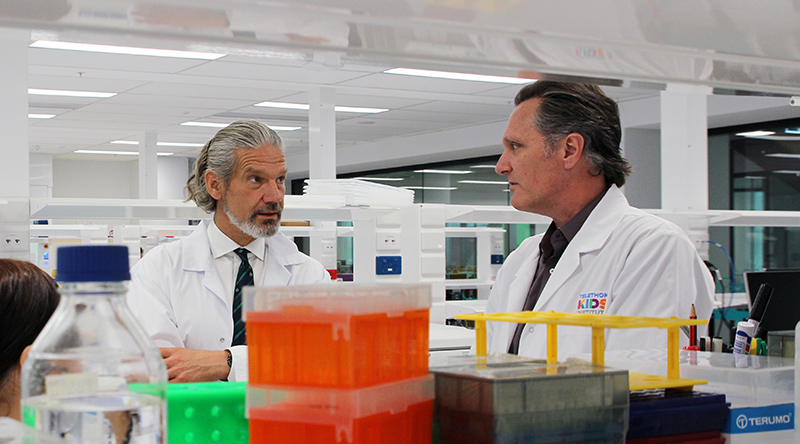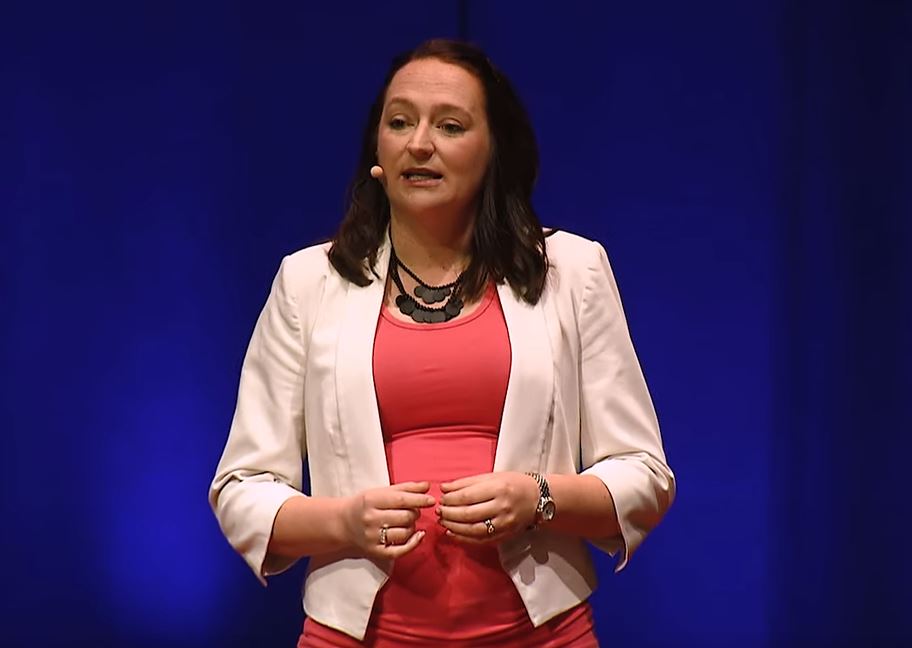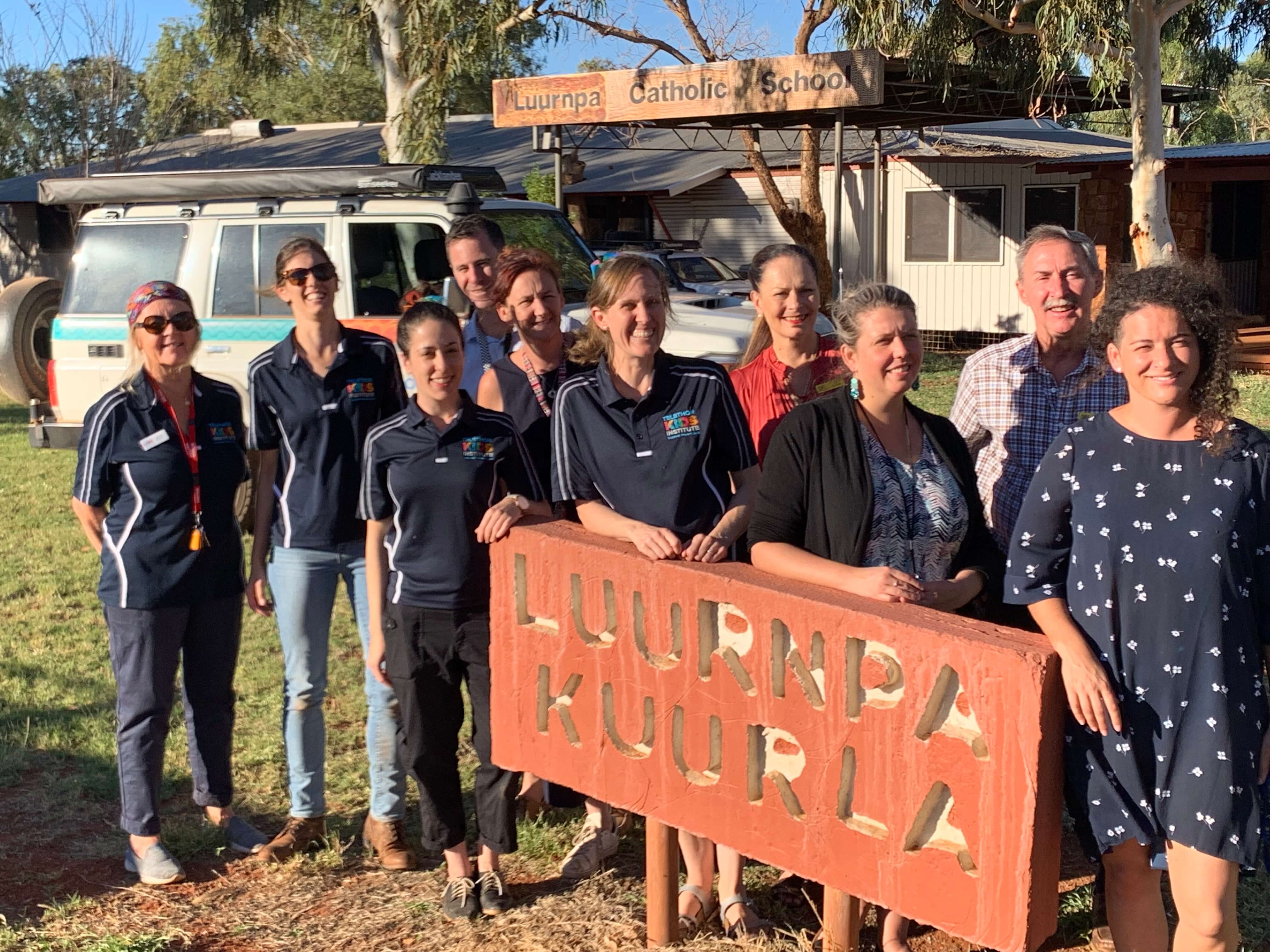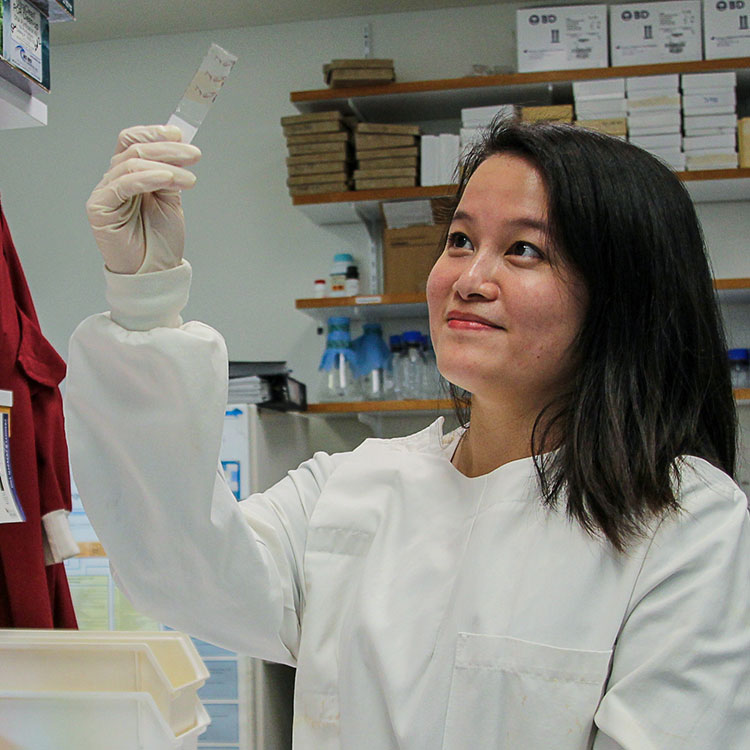Search
Research
Duplex quantitative PCR assay for detection of haemophilus influenzae that distinguishes fucose-and protein d-negative strainsDeveloped a specific Haemophilus influenzae quantitative PCR (qPCR) that also identifies fucose-negative and protein D-negative strains
Research
Temporal changes in BEXSERO® antigen sequence type associated with genetic lineages of Neisseria meningitidis over a 15-year period in Western AustraliaThe BEXSERO® vaccine which is used to prevent serogroup B disease is composed of four sub-capsular protein antigens supplemented with an outer membrane vesicle.

News & Events
Five researchers from The Kids awarded Early Career Child Health Researcher FellowshipsFive researchers from The Kids Research Institute Australia have been awarded three-year fellowships with the aim of keeping more WA-based PhD graduates involved in child health research.

News & Events
Children sought for study into how to prevent sore throatsMore than 1000 children are being sought for a study to learn more about sore throats and how best to prevent them.

News & Events
BHP commits $2.6 million to research focused on stopping COVID-19 spreadResearchers from The Kids Research Institute Australia will lead a world first trial to test the effectiveness of the drug interferon in stopping outbreaks of COVID-19 by reducing the infectiousness of people who contract the virus.

News & Events
Sharing the power of data at TEDx PerthDr Hannah Moore was one of WA’s brightest minds chosen to speak at TEDX Perth in November last year, presenting her insights into the power of data in fighting infectious diseases to a sold-out crowd at the Perth Concert Hall.

News & Events
First week of school visits mark official launch of the SToP TrialThe The Kids Skin Health team has a busy six weeks ahead - visiting nine communities throughout the Kimberley region of WA as part of the first school surveillance activities for the SToP Trial.

News & Events
State Government boost for The Kids researchThe Kids Research Institute Australia researchers have been awarded five of eight State Government awards designed to help cover the hidden costs of conducting research.

News & Events
Premature babies at greater risk of childhood infectionNew research has found children who are born even slightly premature or underweight are more likely to be hospitalised with an infection during their childhood
Research
Public health and economic perspectives on acute rheumatic fever and rheumatic heart diseaseEfforts to eliminate ARF and RHD in Australia over the past decade have so far been unsuccessful, but this can change
